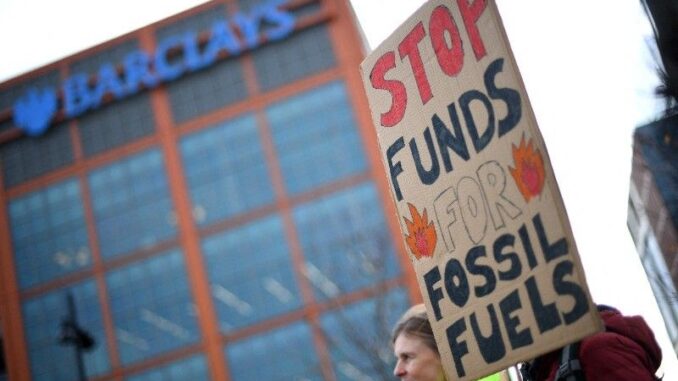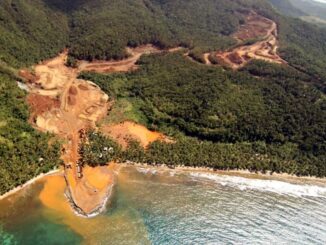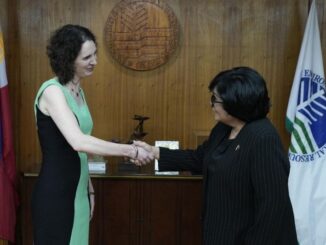
MANILA, Philippines — The promised global shift from fossil fuels remains unmet as fossil fuel continues to expand in Southeast Asia with the backing of international financiers, environmental groups said.
The 29th session of the Conference of Parties (COP) to the United Nations Framework Convention on Climate Change (UNFCCC) began its two-week marathon meetings on Monday, November 11, in Baku, Azerbaijan.
What is COP? Each year, COP brings together global leaders from the public and private sectors to discuss national climate action plans aimed at meeting the 2015 Paris Agreement’s goal of limiting the global temperature increase to no more than 1.5°C.
As COP29 began, civil society organizations held a press conference on Monday afternoon, highlighting contradictions in the commitments made at COP28, the urgent need for robust climate finance, and the call for clearer regulations to prohibit public funding for oil and gas projects.
More concretely, nations are calling for annual climate financing of 1 trillion USD, with at least 300 billion USD dedicated each year to mitigation efforts.
COP28 promises. It can be recalled that COP28 marked a significant turning point in the global shift away from fossil fuels, as nearly 200 countries approved the agreement to “transition away from fossil fuels in energy systems, in a just, orderly, and equitable manner.”
Developing countries at risk
While renewable energy initiatives have risen, Philippine-based think tank, Center for Energy, Ecology and Development (CEED) said that the persistence of fossil fuel dependence has contributed to the worsening effects of climate change as global temperatures rise.
Southeast Asian countries have been bearing the brunt of extreme weather events as heat indexes reach 40°C to 50°C and storms have become more frequent.
“In particular, even all the mechanisms on transitioning away from coal, there is a massive expansion still that is happening in Southeast Asia,” CEED executive director Gerry Arances said.
According to the World Meteorological Organization (WMO) on Monday, the global average surface air temperature from January to September 2024 was 1.54°C above pre-industrial levels, driven by rising greenhouse gas emissions.
This means global temperatures have surpassed the 1.5°C limit. However, WMO Secretary-General Celeste Saulo said this does not mean countries have failed to meet Paris Agreement goals, as short-term variations, like those from El Niño and La Niña, differ from the long-term target.
Continued fossil fuel financing
Arances said that renewable energy financing in the region has been primarily driven by domestic banks in countries like the Philippines and Thailand.
Despite Southeast Asia hosting half of the ongoing energy transition programs, he said these efforts barely make a dent in curbing fossil fuel expansion.
Arances said this is mainly due to the massive fossil fuel expansion still supported by both public and private finance, including banks from Japan, Europe and the United States.
“And what is very stark is that this massive fossil fuel expansion is basically financed and fueled by northern financial institutions,” he added.
Hiroki Osada, development finance and environment campaigner for Friends of the Earth, confirmed that Japan has been “one of the largest fossil fuel financiers” in Southeast Asia, contradicting the country’s claims of supporting decarbonization in the region.
“So Japan is delaying actively the decarbonisation or transitioning away from fossil fuels in Southeast Asia,” he said, highlighting how Japanese banks have been providing billions of dollars for gas projects in the region.
Osada added that Japan “has more responsibility than ever,” especially with US President-elect Donald Trump expected to return to office.
Trump has consistently denied the existence of climate change and vowed to pull out of the Paris agreement despite the US being among the top contributors to global warming.
Financing loopholes
Meanwhile, Germany-based environmental organization Urgewald pointed out that financial institutions, such as private banks that “brag about ceasing financing coal,” still support coal companies through corporate loans, shares, or bonds.
“So, that’s a big loophole. And I think you are referring to multilateral development banks which have coal expansions. They are still able to invest into companies that are still developing coal in the region,” Urgewald energy and finance campaigner Regine Richter said.
She cited the Asian Development Bank as an example, explaining that while it has stopped financing upstream oil and gas projects, it continues to fund midstream ones.
Upstream projects refer to oil and gas production which involve drilling and extracting activities. Midstream projects, on the other hand, are more in line with the transportation, storage and distribution of oil and gas.
“And that’s why it’s really important that private institutions, like private banks, private insurers, that they take some responsibility and go very clear on excluding, finishing the loopholes on coal, excluding gas developments in the region,” Richter said.
These are the concerns that environmental groups hope the COP29 meetings will tackle until November 22, calling for a stricter global commitment to veering away from fossil fuel and toward the financing for energy transition.





Be the first to comment